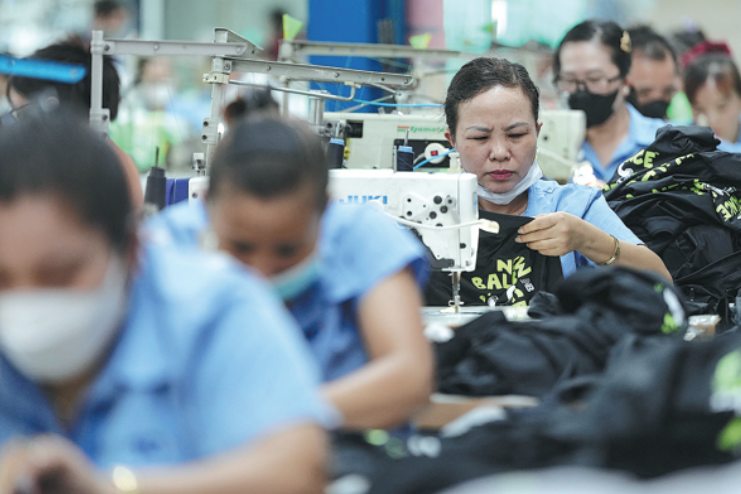Proactive policy helps woo foreign investors
Major intl firms expected to step up investment in China's high-tech and supply chain sectors on strong reform efforts


Despite operating in different industry sectors, several multinational corporations — such as Germany's Siemens AG, Tapestry Inc of the United States and Japan's Takeda Pharmaceutical Co — share a common goal of stepping up investment in China's high-tech and supply chain sectors to stay competitive.
Their top executives, who attended the China Development Forum 2025 in Beijing in March, noted that the Chinese government's proactive efforts — from expanding domestic demand to fostering emerging and future industries, and deepening international cooperation through greater openness — are sending out strong signals and continuously boosting the confidence of foreign businesses in the Chinese market, despite rising global trade protectionism, unilateralism and geopolitical tensions.
One such company is Mercedes-Benz.
The German automotive group will begin producing the long-wheelbase electric CLA, a compact luxury model, in China this year, followed by the long-wheelbase GLE SUV and an all-new electric van in the coming years.
Ola Kaellenius, chairman of the board of management at Mercedes-Benz, said the company has made significant strides in research and development in China. Powered by its innovation centers in Beijing and Shanghai and supported by 2,000 local experts, the group has advanced its development of connectivity, digitalization, autonomous driving features and electric vehicle transformation.
"Just like other European automotive companies, we have been among the biggest foreign beneficiaries of China's rapid economic growth," said Kaellenius.
"At the same time, our industry has been one of the largest recipients of foreign direct investment in China. There is a strong interdependence between China and the European Union. Both sides want to protect jobs in their home markets while reaping the benefits of free international trade," he added.
Noting that China's growing focus on boosting domestic consumption is giving global companies greater confidence to invest in the world's second-largest economy, Joanne Crevoiserat, CEO of Tapestry, said the company is keen to contribute to the country's consumption upgrade and expansion by bringing more innovative products to this market.
Tapestry is a New York-based luxury goods maker and the parent company of brands like Coach and Kate Spade.
"China is our largest market outside the US, and it is a major source of inspiration for us globally. Many of the innovations we develop here — through partnerships with Chinese companies to serve Chinese consumers — are later introduced to other markets around the world," Crevoiserat said.
The company, she added, is on track to achieve its goal of opening 100 stores in China between 2022 and 2025, with the milestone set to be reached by the end of this year.
"In addition to investing in physical stores, or brick-and-mortar retail, we will also invest in digital, particularly with the advancements in the Chinese market, as local consumers are fairly digitally engaged," she said. "So, we have been making investments into our digital capabilities and meeting the consumer demand in an omnichannel way."




































